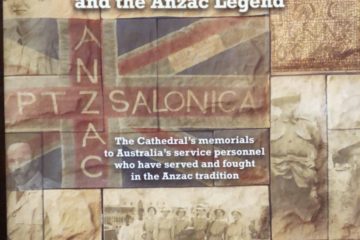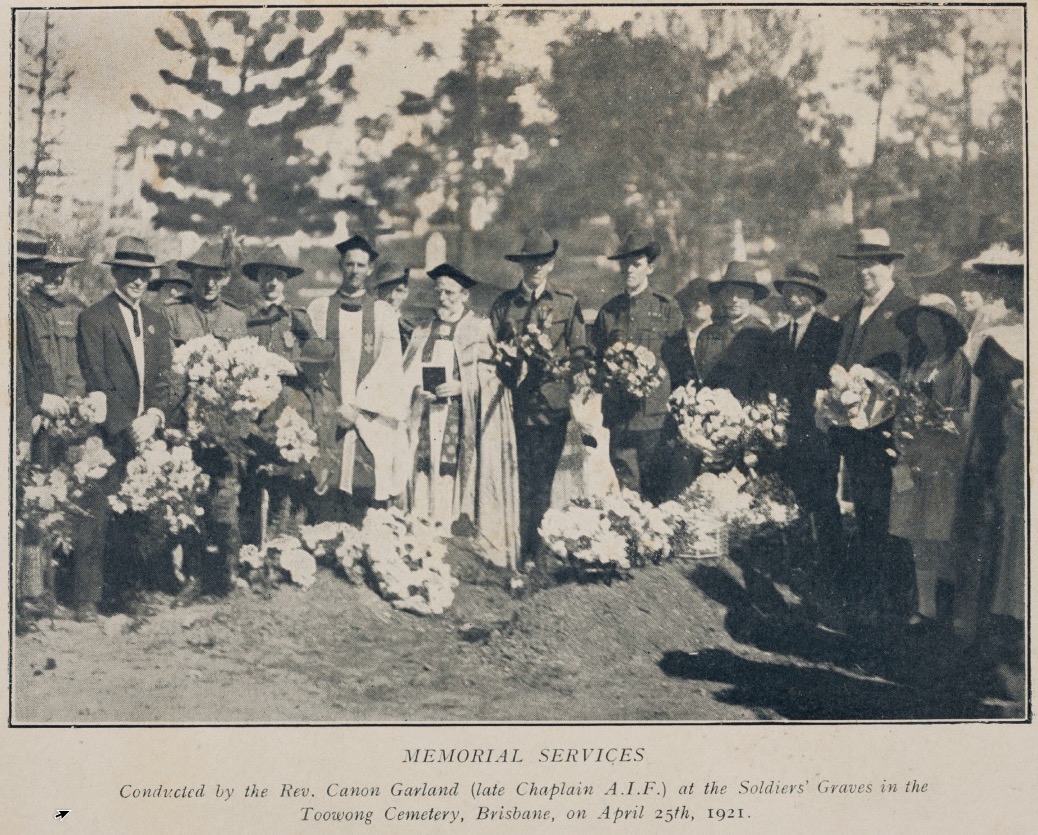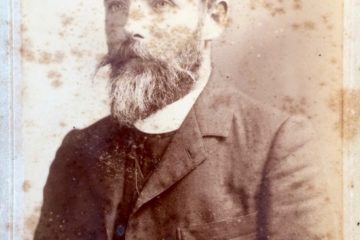Machinery of recruiting
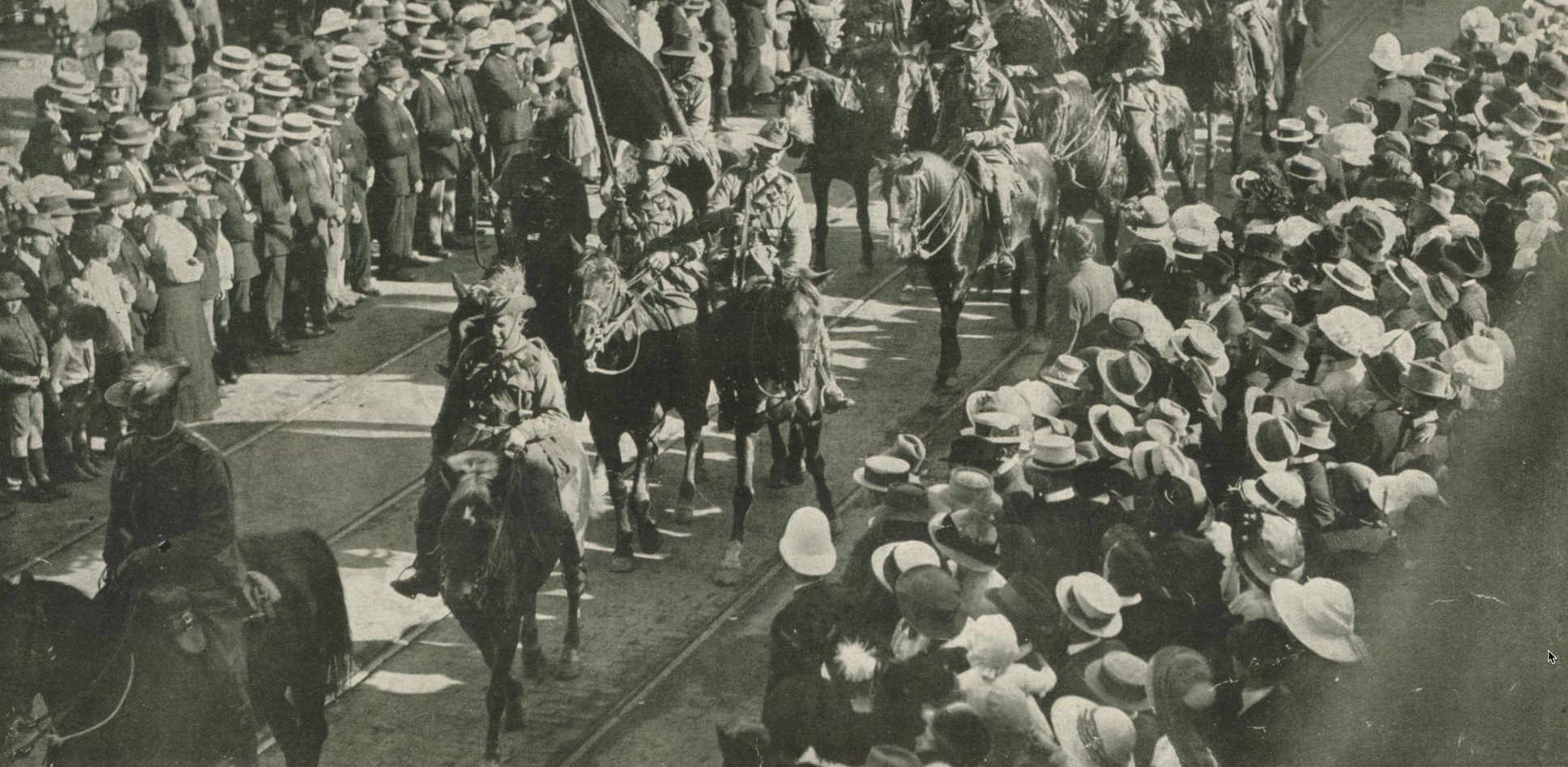
ABOVE: The Expeditionary Force infantry passing the saluting point at Brisbane’s General Post Office. This image appeared in The Queenslander Pictorial, supplement to The Queenslander of 5 June 1915 (pg21). From the Queensland State Library Collection .
QUEENSLAND RECRUITING COMMITTEE.
THE CALL TO ARMS APPEAL.
140,000 SENT OUT; 113,000 REPLIES
A MEETING of the general committee of the Queensland Recruiting Committee was held last Thursday evening [ 16 March 1916 ].
There were present:
- Colonel The Honourable A.J. Thynne, M.L.C. (chairman) [ Andrew Joseph Thynne ]
- Lieutenant-Colonel Moore [ Richard Albert Moore ]
- Chaplain Lieutenant-Colonel D.J. Garland [ David John Garland ]
- The Reverend Canon Micklem [ Philip Arthur Micklem ]
- Professor A.J. Gibson [ Alexander James Gibson ]
- Captain C.J. Weavers [ Cyril John William Weaver (or Weavers) ]
- Lieutenant J. McKnight [ John McKnight ]
- Mr. P.B. Macgregor (honorary secretary) [ Peter Balderston Macgregor ]
- Mr. F. Wylde-Ball (honorary assistant secretary) [ Frank Wylde Ball ]
- Mr. R.C. Ramsay [ Robert Christian Ramsay ]
- Mr. P.J. Symes [ Philip James Symes ]
- Mr. J.U. McNaught [ John Ure McNaught ]
- Mr. J.H. Fairfax [ John Hubert Fairfax ]
- Mr. R.H. Roe [ Reginald Heber Roe ]
The report of the executive [ committee ] stated that since the last meeting of the general committee the executive [ committee ] had had a busy time in promoting the principal object for which the committee was formed, viz., recruiting for the Australian Imperial Force throughout this State, and pleasure to report a considerable and satisfactory measure of success.
The most cordial spirit of co-operation had long existed between the Defence Department and the executive committee and officers.
When, in September last, the Commonwealth Government announced that it had been decided to offer to the British Government a new army of 50,000, together with a supply of reinforcements for the forces already formed in the new army, of which Queensland’s proportion would be at the rate 2,000 per month, it was mentioned that the Prime Minister (Mr. Hughes) was sending to every man of military age in the Commonwealth an appeal to enlist – or state their reasons for not doing so – and that the duty of replying was absolutely under the War Census Act; further, that such replies were to be sent to the nearest local recruiting body.
Local committees were to be formed to deal with replies, the town or shire clerks being the local secretaries, and supervising the work of recruiting sergeants.
It appeared to the [ general ] committee that the condition existing in Queensland had not received due consideration, and that there was danger of failure owing to the great distances of many of the local authorities, the intervals between the meetings and particularly to the fact that the town and shire clerks were coming to their busiest time – winding up their year’s financial work, compiling their rate-books and voters’ rolls, and preparing for the annual elections soon after the commencement of the New Year.
The executive [ committee ] recommended to Mr. Knibbs (Commonwealth Statistician) [ Stanley George Curthoys Knibbs ] that in sending out the appeal to all Queenslanders he should arrange that the replies should all be sent to the Queensland Recruiting Committee who would deal with them and also that he should send a complete list of the names and addresses of all persons in Queensland who were required to send in replies.
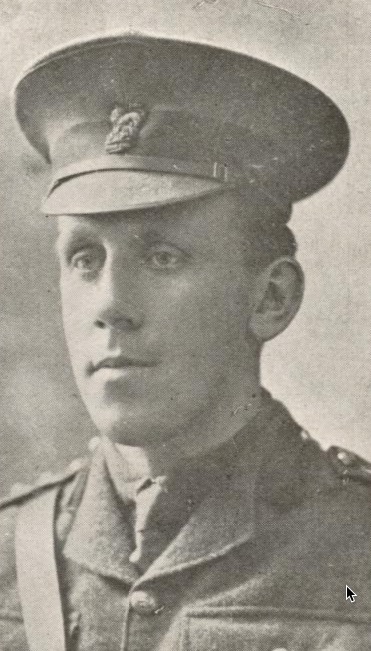
ABOVE: Tasmanian-born Staff Captain Cyril John William Weavers of the Australian Royal Garrison Australian was the 1st Military District commander of First AIF training camps in Queensland in 1916. The State War Council, on its formation in September 1915, absorbed the sub-committee known since 28 May 1915 as “The Queensland Recruiting Committee” (otherwise known as the “Parliamentary Recruiting Committee”) of which Canon Garland was a foundation member. As the committee’s inaugural Organising Secretary, Canon Garland vigorously canvassed for new enlistees and campaigned in favour of conscription in both referenda. Captain Weavers would be the officer who brought charges in court against any able-bodied civilian who failed to register his eligibility for recruitment in the First AIF. This image appeared on page 27 of “The Queenslander Pictorial”, supplement to “The Queenslander”, of 18 December 1915.
Neither of these recommendations was accepted and with a view to meeting the danger of failure or of delay, the executive communicated with all the local authorities, requesting them to send to the committee all the replies and offering to classify them to supply the Commandant [ Captain Cyril John William Weavers ] with the names of all who were ready to enlist and to return to each local authority the names of all the persons in its area who had not offered to enlist so that the Government scheme might be fully carried out.
An important event had, in the meantime, occurred in the constitution of the Federal War Council [ on 28 July 1915 ] and the creation of State War Council [ on 21 September 1915 ], the each of which were charged as one of its objects recruiting in its State.
After the State War Council for Queensland was formed it invited the chairman of the executive to become a member of War Council and appointed the other members of the executive as a sub-committee with him for recruiting, and the War Council entrusted that committee with the conduct of recruiting, so that the members of the executive committee had been exercising the authorities delegated to them originally by the general committee, as well as those delegated to them by the State War Council.
In offering to undertake the classification and subsequent dealings with the replies to the Prime Minister’s appeal the executive took upon itself a very heavy task.
The amount of clerical work involved was very great and reliance had been placed on the voluntary assistance of patriotic people in the community to enable the work to be done and a large amount of help had been forthcoming.
It was estimated that the Prime Minister’s appeal had been sent to about 140,000 men in the State. Up to the present time the committee had received 113,000 replies.
As these were opened they were stamped with consecutive numbers, and then allocated to their respective areas.
The next step was to make out check slips, giving the identification numbers and letters, and the effect of each reply, and 106,000 of these had been mailed to the Commonwealth Statistician.
A card index system had been installed through which, when completed, immediate reference could be made to the circumstances connected with any individual reply.
For all men whose replies expressed a readiness to enlist, only one card was necessary for each person. Up to date 3,800 of these men had been called up.
For all who gave negative answers to the Prime Minister’s appeal, two cards were required, one for the committee’s records and the other for the use of the local committees and recruiting sergeants.
Some progress had been made with these, as about 23,000 had been dealt with up to date, but a very great amount of work remained to be done.
Full recognition was due to voluntary workers who had generously given their assistance, and their names were being recorded with a view to a more individual acknowledgment of their services.
Men from government offices, both Federal and State, and from private companies and firms had given valuable help, and the committee had also received substantial assistance from a number of women who gave their time, chiefly during the day, in a patriotic and unselfish spirit.
A matter of urgency was the preparation of the cards for use of the recruiting sergeants and local committees.
The efficiency of the local work and of the personal approach to individuals (which was very important) depended a good deal upon this and the committee needed all the assistance it could get to push on this work. It could accommodate up to 70 persons at a time.
The pressure of the work of the executive, increased as it had been by the new army requirements, had been very great, and had been borne heavily upon the honorary assistant secretaries almost to breaking point.
Weekly meetings of the executive had been held to deal with the great variety of questions continually arising, but the pressure had been so great that the executive had been obliged to defer from time to time the calling of a meeting of the general committee.
The results had shown that the recruiting campaigns of last year were conducted on sound principles, viz., campaigns of education based on the belief that the great bulk of the young men of this country only needed to understand the necessity for their service and the tremendous issues at stake in this war to induce them to take up arms in defence of the Empire and its Allies.
Regret was expressed that Chaplain Lieutenant-Colonel Garland had been obliged, on account of health considerations, to lay down his work as organising secretary.
He had devoted himself with characteristic energy and capacity to the duties he had undertaken, and it was some reward to him to see the good results attained through his labours, which, the executive trusted, would receive some expression of appreciation from the general committee, as he had thoroughly deserved it.
The Commandant, who had been promoted to the rank of Brigadier-General, had given the committee every encouragement and support, and at his suggestion, Captain Weaver(s) (Camps Commandant) and Lieutenant McKnight (Chief Recruiting Officer) had been invited to join the executive.
This had contributed immensely to the smoothness and efficiency of the work in hand. There were now 150 recruiting sergeants at work all over the State.
Their appointment had been made by the Chief Recruiting Officer [ Lieutenant John McKnight ], but their payment was carried out by the committee out of funds provided for that purpose by the Commonwealth Government.
These men were paid fortnightly, and the work connected with their vouchers, remittances, etc., was very considerable, so much so that it was thought it could be very well carried out by the Commonwealth’s paymaster, who had a trained staff at his disposal.
The committee was endeavouring to get this change brought about.
The report was adopted on the motion of the chairman, seconded by Mr. Roe.
The chairman referred to the splendid work done by the advisory committee of the Camps Canteen.
The Recruiting Committee had appointed members on the board, and they had with them Mr. P.J. Symes [ Phillip James Symes ] as chairman.
As evidencing the good results, in the first three months the profits had been £1,900, in the next month £1,600, while last month they had increased to £2,000.
The profits from the canteen were expended judiciously for the comfort and welfare of the troops.
He thought it would be conceded by Captain Weavers that the creation of the splendid institution known as “The White City”, was the outcome of the good work of organising of the Canteen Committee.
He moved a cordial vote of thanks to Mr Symes and his colleagues. (Applause.)
The motion was seconded by Chaplain Lieutenant-Colonel Garland and supported by Captain Weavers, who said he desired to personally and publicly thank Mr. Symes.
Mr Symes said he was exceedingly gratified that what little had been done by his colleagues and himself had been appreciated and he wished to thank them sincerely.
Had it not been for the earnest co-operation of Captain Weavers the results could not have been so very satisfactory.
The Chairman said that Chaplain Lieutenant Colonel Garland, in the early days of the recruiting movement, had done a great deal of good and lasting work for the recruiting movement.
He had done most of the pioneer work and he (the chairman) had very great pleasure in moving that Canon Garland be asked to accept the roll-top desk at present in his office, and owned by the committee, as a very slight acknowledgment of the good work he had done. A plate with an inscription would be added. (Applause.)
Mr. Macgregor spoke appreciatively of the work of Chaplain Lieutenant-Colonel Garland, and also of the splendid work done by Mr. Wylde-Ball – (Hear, hear.) – and the motion was carried unanimously.
Chaplain Lieutenant-Colonel Garland, in the course of his reply, said it had been a great pleasure to work with the committee and especially the chairman, Colonel Thynne. (Hear, hear.)
It had been with great regret when, on the advice of his medical adviser, he had to choose between the recruiting and his sacred calling, and he had taken more work than his constitution would stand.
However he had the very great satisfaction of knowing that the recruiting was now in very able hands, and if he had shown any wisdom, he did it by choosing the time to step out when their very able honorary assistant secretary (Mr. Wylde-Ball) had been ready to step into the position. (Applause.)
He referred very strongly to remarks made by prominent gentlemen who complained that the soldiers were being molly-coddled. He thought that such remarks were most unjust. (Hear, hear.)
The committee placed on record its great pleasure at the promotion of the District Commandant to the rank of Brigadier-General [ Lieutenant-Colonel the Honourable Colin Dunlop Wilson Rankin, the State Member for Burrum ].
Considerable discussion took place on a proposal for differential taxation of enemy aliens but no decision was arrived at.
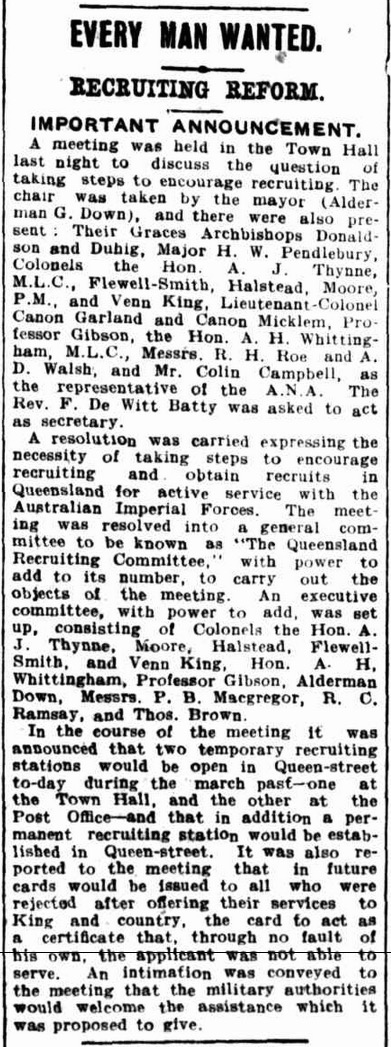
ABOVE: On Friday evening, 28 May 1915, Chaplain Lieutenant-Colonel the Reverend Canon David John Garland was present for the formation of “the Queensland Recruitment Committee” at a public meeting convened by Brisbane Mayor, George Down, in the Brisbane Town Hall. Others present included: His Grace St Clair George Donaldson, Church of England Archbishop of Brisbane; His Grace Dr James Vincent Duhig, Roman Catholic Archbishop of the Archdiocese of Brisbane; the Honourable Andrew Joseph Thynne, Life Member of the Queensland Legislative Council; Major Henry William Pendlebury, 1st Military District; Mr John Francis Flewell-Smith; Mr Albert Edward Halstead; Colonel Richard Albert Moore, Police Magistrate; Colonel Henry Venn King; the Honourable Arthur Herbert Whittingham, Life Member of the Legislative Council of Queensland; Professor (Captain) Alexander James Gibson of the University of Queensland; Alderman George Down, Mayor of Brisbane; Mr. Peter Balderston Macgregor; Mr. Robert Christian Ramsay; Mr. Thomas Brown; the Reverend Canon Francis de Witt Batty; the Reverend Canon Philip Arthur Micklem; Mr. Alfred Degilbo Walsh, mercantile manager; and Mr. Colin Campbell. This article appeared in “The Brisbane Courier” newspaper on 29 May 1915 (page 5).
A motion was carried however, on the proposition of Chaplain Lieutenant-Colonel Garland, that the time had arrived when all enemy aliens and naturalised subjects of enemy organisations should be disenfranchised, in all parliament, municipal and shire governments.
Mr. Roe, who seconded, said it was a monstrous thing that in time of war enemy subjects and sympathisers should be in a position to shape the policies of national, State and local government.
Appreciation of the fine work done by Captain Weavers, as Camp Commandant, was placed on record, the committee stating that it recognised fully that the splendid conditions prevailing at Enoggera were the finest recruiting advertisements they could have.
Mr Symes brought up the question of the initiating of a national register for a man offering his services to receive a badge.
The suggestion was debated at some length and considered to be good, and was referred to the executive committee for action.
– from page 8 of “The Brisbane Courier” of 21 March 1916.
